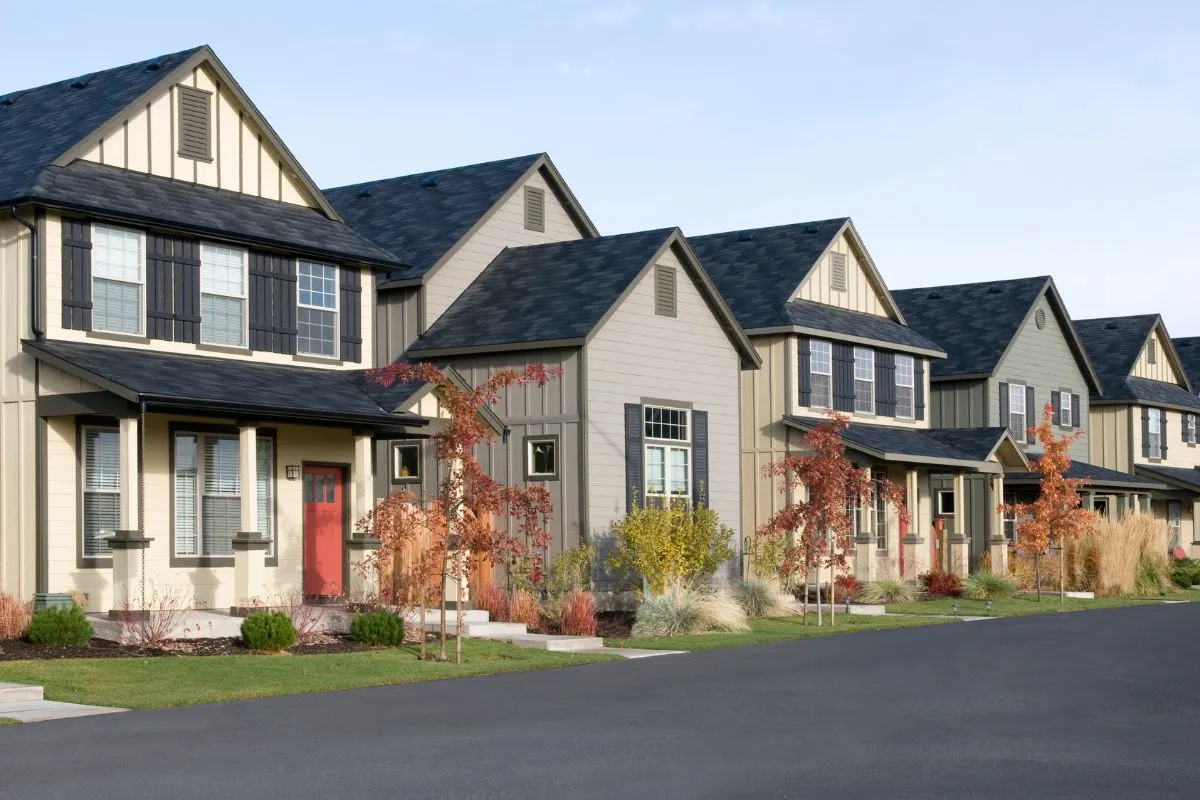The housing market in Fort Worth, like many other cities, presents its own unique challenges and opportunities. While the city offers a diverse range of housing options, affordability remains a significant concern. Let's explore some of the most common housing options and their average costs in the Fort Worth area for 2024:
Understanding Your Housing Budget
A general rule of thumb is to spend no more than 30% of your monthly income on housing. However, this can vary depending on individual circumstances and local housing costs. Factors to consider include:
- Income: Your income level will significantly impact your housing budget.
- Debt: Existing debt, such as student loans or credit card debt, can limit your spending power.
- Emergency Fund: A solid emergency fund can provide a financial cushion.
- Long-Term Goals: If you're saving for retirement or other goals, a lower housing cost can free up more funds.
Traditional Housing Options
1. Renting a 3-Bedroom Apartment:
- Average Monthly Rent: $1,500 - $2,000
- Pros: Lower upfront costs, flexibility, and often includes amenities like maintenance and utilities.
- Cons: Limited control over the space, potential for rent increases, and potential for noisy neighbors.
2. Renting a Single-Family Home:
- Average Monthly Rent: $1,800 - $2,500
- Pros: More space, privacy, and potential for yard space.
- Cons: Higher upfront costs, including security deposits and application fees, and less flexibility in terms of renovations or customizations.
3. Purchasing a New Home:
- Average Purchase Price: $350,000 - $500,000
- Additional Costs:
- Down Payment: 5-20% of the purchase price ($17,500 - $100,000)
- Closing Costs: 2-5% of the loan amount ($7,000 - $25,000)
- Property Taxes: Varies based on property value
- Homeowners Insurance: Varies based on coverage and risk factors
- Pros: Modern amenities, energy efficiency, and the ability to customize.
- Cons: High upfront costs, including down payments, closing costs, and property taxes.
4. Purchasing an Existing Home:
- Average Purchase Price: $300,000 - $450,000
- Additional Costs:
- Down Payment: 5-20% of the purchase price ($15,000 - $90,000)
- Closing Costs: 2-5% of the loan amount ($6,000 - $22,500)
- Property Taxes: Varies based on property value
- Homeowners Insurance: Varies based on coverage and risk factors
- Pros: Established neighborhoods, potential for character and charm, and potentially lower prices than new homes.
- Cons: Potential need for repairs and maintenance, and less flexibility in customization.
Innovative Housing Options
5. Manufactured Homes:
- Average Purchase Price: $80,000 - $150,000
- Additional Costs:
- Land Lease: Varies based on location and lease terms
- Property Taxes: Varies based on property value
- Homeowners Insurance: Varies based on coverage and risk factors
- Pros: Lower upfront costs, customizable options, and often quicker construction times.
- Cons: Potential for lower resale value and potential for zoning restrictions.
Popular Fort Worth Suburbs and Average Home Prices
By considering these suburbs, you can find more affordable housing options while still enjoying the benefits of living in the greater Fort Worth area. Remember to research specific neighborhoods within these suburbs to find the best deals and amenities that suit your needs.
- Arlington:
- Known for its sports stadiums and entertainment venues.
- Average home price: $300,000 - $400,000
- Grand Prairie:
- A diverse suburb with a growing economy.
- Average home price: $250,000 - $350,000
- Keller:
- A family-friendly suburb with excellent schools.
- Average home price: $350,000 - $500,000
- Burleson:
- A quiet suburb with a strong sense of community.
- Average home price: $250,000 - $350,000
- Crowley:
- A growing suburb with a mix of rural and urban living.
- Average home price: $200,000 - $300,000
Manufactured Home Communities: A Smart Choice for Affordable Housing
Manufactured home communities offer an excellent alternative to traditional housing options, particularly for those seeking affordable living. These communities provide a unique blend of affordability, flexibility, and a sense of community.
How Equity Works with Manufactured Homes
One of the biggest advantages of owning a manufactured home is the potential to build equity. Equity is the difference between the current market value of your home and the amount you owe on your mortgage. Over time, as you pay off your mortgage, your equity increases.
While the value of a manufactured home may not appreciate as quickly as a traditional site-built home, it still offers a valuable asset. As property values in the area rise, so too does the value of your manufactured home. Additionally, many manufactured home communities offer opportunities for property appreciation through land lease ownership.
Balancing Affordability and Homeownership
Manufactured homes provide a balance between the lower costs of renting and the higher costs of traditional homeownership. Here's how:
- Lower Upfront Costs: Compared to traditional homes, manufactured homes often require smaller down payments and have lower closing costs.
- Affordability: Monthly mortgage payments on manufactured homes are typically lower than those for traditional homes.
- Flexibility: Manufactured homes can be customized to fit your needs and budget. You can choose from a variety of floor plans, finishes, and features.
- Community Living: Many manufactured home communities offer amenities like clubhouses, swimming pools, and recreational facilities, providing a sense of community and social interaction.
Embrace the Pride of Homeownership
Are you ready to experience the pride of homeownership without breaking the bank? Manufactured homes offer an excellent opportunity to own your own home and build equity. With their stylish designs, modern features, and affordable price points, manufactured homes are becoming increasingly popular. Don't miss out on this fantastic opportunity. Contact us today to schedule a tour of our community and discover the perfect home for you and your family.
